Despite the ICJ’s ruling calling for the prevention of plausibly genocidal acts against the Palestinians, the IDF continues its slaughter of civilians in the Gaza Strip with impunity. Assal Rad, historian, and Middle East scholar discusses the plight of 1.4 million Palestinians in Rafah and the absurdity of placing their livelihood in the hands of Israeli officials whose aim is anything but ensuring their safety. If Israeli government plans are not just another step towards ethnic cleansing, why won’t Prime Minister Netanyahu propose evacuating Palestinians to Israel in order to ensure their subsequent safe return back to the Gaza Strip?
A Viable Plan or Utter Delusion: Is the Two-State Solution (Still) Possible? – Assal Rad part 2/2
Talia Baroncelli
Hi, I’m Talia Baroncelli, and you’re watching theAnalysis.news. This is part one of my discussion with historian Assal Rad. We’ll be speaking about the Biden administration’s ongoing support for Israel’s bombardment of Palestinians in the Gaza Strip and discussing the conditions on the ground ever since the ICJ’s ruling on January 26.
If you like this content and you’d like to support the work that we do, we encourage you to go to our website, theAnalysis.news, and hit the donate button at the top right corner of the screen. Make sure you get onto our mailing list; that way, you’re always up to date whenever a new show drops. Like and subscribe to the show wherever you watch your podcast, be it on Spotify, Apple, or YouTube. See you in a bit for part one of my discussion with Assal Rad.
Joining me now is Assal Rad. She is a historian and scholar on the Middle East, who’s also the author of the book State of Resistance: Politics, Culture, and Identity in Modern Iran. You might have seen her post on social media as well, documenting the headlines written by mainstream media outlets on what’s going on in Gaza and the really twisted narrative that they’ve been presenting. Thanks very much for joining me, Assal, to speak about these issues.
Assal Rad
Of course. Thank you for having me.
Talia Baroncelli
Well, there are currently 1.4 million Palestinian civilians in Rafah right now. Now, that’s close to the Rafah Crossing, which is the border between the Gaza Strip and Egypt. Of course, they’re not there of their own volition. They were told to go there by the Israeli military forces— to continuously move further south as the operation also progressed further south. But then, as we’ve seen, the Israeli Defense Forces have been carrying out operations throughout the Strip, so no part of the Gaza Strip is actually safe. Now, these civilians are just huddled. They’re like sardines in a can. There’s nowhere for them to go.
The international community is, of course, saying that there needs to be a plan for these civilians to be evacuated to safety if the Israeli military is to continue its operation in Rafah.
Prime Minister Benjamin Netanyahu has said that 18 out of 24 Hamas battalions have been killed, that they plan on eliminating Hamas in Rafah, and that they’re going to go forward with this operation, regardless of what happens. The Israeli military just presented its plans to, quote-unquote, “evacuate civilians” from that particular area of Rafah. Now, the board cabinet needs to make a decision on these plans.
Given what we’ve already seen in the Gaza Strip, how can we be certain that these civilians will actually be treated with dignity and respect and be brought to safety as opposed to just being ethnically cleansed and forced out of the Gaza Strip altogether?
Assal Rad
No, absolutely not. There’s no reason to take them at their word because their word continuously has been that they’re trying to protect civilians, and yet we’re seeing by far the most deaths per day in a conflict, in any recent conflict in history.
This has been ongoing from the very beginning. We’ve watched this happen for four and a half months. Palestinians have been moved from Northern Gaza, continuously south, moving further south, moving further south. Now, the only location that they have, because everywhere else has already been bombed, is Rafah. That’s where about 1.4 million people, if that’s the estimate, would be something like 70% of the population, 65% to 70% of the has now been moved to what is the size of Heathrow Airport.
You already have this very densely populated, the most densely populated, refugee camp in the world now sitting at the border. They use innocuous words like evacuation because what else can they say? They can’t say, “We don’t care what happens to civilians.” Actually, let me take that back. Many Israeli officials do say they don’t care what happens to the Palestinian civilians. In fact, they don’t refer to them as civilians. They’ve called them animals. They’ve used all sorts of dehumanizing language, from the Prime Minister, and this is very important because, in the Western discourse, they try to take specific Israeli officials like [Itamar] Ben-Gvir and [Bezalel] Smotrich and say, “Well, those are extremists.” But no, this language is coming from Prime Minister Netanyahu. It’s cabinet members. It’s members of the Knesset. It’s military personnel. It’s actual civilians. It’s leaders of the settlement movement. I mean, it is ubiquitous across different sections of Israeli society and within the official language to use the language of genocidal intent, which is precisely what the South African case presented to the International Court of Justice.
I want to take back what I said that they’re not using that language. They absolutely are. But at the same time, you hear this lip service to the Western world coming from the United States, coming from Israeli officials saying things like, “Well, we’re going to try to protect civilians.” That has not been the case. Repeatedly, that has not been the case. There can be no evacuation plan because there’s nowhere to evacuate. You’ve seen this in press briefings over the last two weeks or so in the U.S. with the State Department.
Reporters are asking these very questions. They’re saying, “Okay, well, have we seen a plan?” The response is always, “We haven’t seen a plan.” You’ve heard these very flippant responses like, “We’re not checking their homework,” as if that’s how we talk about a plan to protect the lives of 1.4 million civilians. But you also hear reporters push back and say, “Is a plan even conceivable?” Of course, there’s no response to that. It’s, “Well, we’re not going to make predictions. We’re not going to tell them what to do. We’re going to see what their plan is.” This has been repeated by several U.S. officials.
There is no plan. There has been no plan all along. The only plan that we have seen is to get rid of Palestinians in Gaza. That is ethnic cleansing. That seems to be more the plan than anything else.
One plan, if Israel was being serious about actually evacuating people, meaning that they would be able to return to their own territory, right? One of the things to know about Gaza is a lot of the population of Gaza are refugees from 1948 who were also not allowed to return to their homes. Why would they suddenly believe that Israel is going to allow them to return to their homes? But if they’re being serious, you can evacuate them to Israel. That would be an option. Evacuate them to Israel, and then they’ll be allowed to return home. All of that points to the fact that we have not seen a plan, and there’s no indication on the U.S. side that there is an official plan that would carry out this evacuation, or so-called evacuation.
Talia Baroncelli
Well, you bring up some really interesting points there. It was last week that several Arab countries led by Algeria introduced a ceasefire resolution at the UN Security Council. The Security Council is comprised of 15 member states. Thirteen of them supported the resolution. Not surprisingly, it was the U.S. who vetoed the resolution and the U.K. who abstained from voting on it. Subsequent to vetoing the resolution, the U.S. tabled their own resolution, calling for a temporary ceasefire as soon as practicable. So that would mean that they would require certain conditions to be met or satisfied on the ground, that they would need certain security guarantees for Israel, so it wouldn’t be an unconditional ceasefire. But that really begs the question, what is actually possible or practicable at this stage?
If you look at what Netanyahu’s government has achieved so far, it doesn’t seem like they’ve really achieved their two purported stated aims in the Gaza Strip, which is to get the hostages back and to root out Hamas out of the Gaza Strip.
Hamas is not just a series of people or groups or networks on the ground. You could argue that Hamas is also an idea that you can’t just root out or exterminate or get rid of as long as the conditions that make Hamas possible exist. So, as long as the conditions support Hamas in a way, the occupation persists; you can’t just get rid of them. If anything, by killing 30,000 civilians, you’re probably contributing to their rise rather than diminishing their existence.
Israel has also not been successful in bringing many of the hostages back. We saw that it was actually when there was a ceasefire that they were able to get some of the hostages back. Their own military operations have resulted in only a few of them being returned and brought to safety back to Israel, and several of them actually being killed by Israeli bombardment. So, at this stage, what is really possible besides a ceasefire? Aside from a ceasefire being the moral thing to do, what is actually possible at this stage?
Assal Rad
Well, I think there are a few things to unpack about that. First of all, the framing, and this is not your framing. This is the framing that has been used in the media that this was an Arab-backed UN resolution. Back in December, when the U.S. again vetoed a ceasefire resolution at the UN that was overwhelmingly supported, there was a New York Times headline that read, The Arab World Condemns U.S. Ceasefire. It’s framed in a way where it makes it seem like it’s the Arab world versus the Western world or versus Israel and the support of the U.S. That’s not the case. The international community overwhelmingly favors a ceasefire. We know that based on the vote of the General Assembly. We know that based on the votes of the Security Council. We know that based on what basically every international institution has said, whether it’s the World Health Organization, calling for a ceasefire for months, been calling for ceasefires, whether it’s international NGOs, Doctors Without Borders, calling for a ceasefire, UNICEF. However you look at it from an international perspective, this is the position of the international community. The U.S. keeps going against the ceasefire.
One of the arguments that they make is, and you heard Secretary [Antony] Blinken say this just a few days ago, I believe he was in Brazil when he made this statement.
Talia Baroncelli
Argentina.
Assal Rad
Was it?
Talia Baroncelli
Sorry, continue, though.
Assal Rad
It could have been Argentina. But basically, he made this statement, and he’s probably said it on several occasions, that resolution wouldn’t have actually achieved the ceasefire. Okay, so if that’s the logic, if the logic is this resolution, we want an end to the conflict, but this resolution alone wouldn’t achieve that, then why veto it? Why not allow it to stand? If, in fact, the goal is to end the conflict. But what the Biden administration is pushing for is a temporary ceasefire. They’re not calling for a permanent ceasefire. They’re calling for a temporary pause, and that’s because they want to get all the hostages released to allow Israel to resume this military campaign, which is plausibly genocidal. The idea that you would pause what is plausibly genocidal, according to the world’s highest court, for 60 days and then allow it to resume is clearly not an end to the conflict.
Why would this be the position of the United States? I mean, you’re asking the wrong person because I don’t understand it myself. I don’t personally understand it. The only thing that I think, logically, you can point to is that U.S. officials, at least in this administration, are somehow beholden to whatever the Israeli position is. The Israeli position is extreme. While U.S. officials will use language that says, “No, we disagree.” We say, for instance, that there has to be a plan to protect civilians before any ground invasion into Rafah. That’s what the U.S. administration says. We don’t agree, and this is recent, again, we don’t agree with the expansion of settlements in the West Bank. We’re against the idea of Israel occupying any more territory in Gaza. But these are just words, and they’re empty because they are not followed with any policy that would actually hold Israel responsible if it didn’t listen to what the U.S. is saying. The officials in Israel know this, which is why they will outright reject everything that the U.S. says.
You have the official handle of the Israeli Prime Minister saying, “No one will stop us, not the hate. We do not recognize basically what the international courts are saying or what any of these international institutions are saying.”
Talia Baroncelli
If I can just add, they’ve also said that international condemnation of an operation in Rafah will also not prevent them from conducting this operation. Whether the hostages are returned in the meantime, they’ll still conduct that operation. So that also raises the question, what is the end game here if it’s really to get the hostages back? And if you were to then get the hostages back, why would you need to continue that operation? The whole thing is very contradictory, and it just shows that their end game is, unfortunately, to forcibly displace Palestinians and kill them.
Assal Rad
Absolutely. I mean, the idea that the hostages would be the central… clearly, the hostages are not the central concern. I think that’s why you also see families of hostages, Israelis protesting against this government, calling for the release of all hostages, calling for negotiations because they see that it is not a priority of Netanyahu’s current government.
I think Israel has killed more of its own hostages than they’ve rescued. That fact alone should indicate that the hostages were never a concern. Or not never a concern, but certainly not the central concern.
You could make the argument that their concern is what you said earlier: eradicating Hamas. But when you talk about Hamas, it’s a chicken-and-egg question. Which came first, the occupation or Hamas? The occupation. Which came first, the colonization of Palestinian land or Hamas? The colonization of Palestinian land. Hamas is after effect of the occupation, the ongoing Apartheid state in Israel, and the fact that millions of Palestinians in East Jerusalem, the West Bank, and Gaza do not have equal rights. They do not have control over their territories. They are under military occupation. When we don’t answer that question, the idea that you can eradicate to the point that you made earlier is essentially an idea. The idea is that this group emerged in the late 1980s as a response to the continuation of the injustices that Palestinians face. If we don’t address the root causes, then we cannot eradicate anything really. Because even if you were to take that name away, you’re not going to eradicate the desire for Palestinian liberation. That’s not going to go away. If your concern is to deradicalize people, well, how do you do that by committing mass slaughter?
I’ve seen people in the U.S. and in Europe; you can see these posts online, you can hear it anecdotally, of people who feel like they have become radicalized by watching what has happened from afar. Just the idea that they cannot believe, that they cannot fathom how you can starve newborn children. The images that we’re seeing are so horrific that it’s politically, at least, radicalizing people in the West.
Now, imagine if that’s your family. If you are the sole remaining survivor in your family, is this going to deradicalize a group of people, or is it actually going to have the opposite effect because of how horrifically they are being treated? Are they going to want justice less now because their families have been eradicated, or are they going to want justice more?
Just to understand the point of logic, the justification that Israel uses for what it’s doing right now is October 7. That means this is the thought process. This horrible injustice happened to Israeli civilians, and therefore, we are justified in responding to it. Then what’s the justification that Palestinians will have to respond to mass slaughter on such an enormous scale, the destruction of their homes, rendering their territory uninhabitable, in addition to all of the things they already had to face before October 7? The fact that Gaza has been under a blockade for well over a decade, the fact that they have no control over their airspace, their water, or their borders, what comes in and out. None of that is an independent territory. It’s just hard to imagine, or it’s hard to justify or reconcile the language of eradicating Hamas or getting the hostages, and none of that fits into the actual strategy and plan that’s been employed by the Israeli government.
Talia Baroncelli
Well, there are a few things there because there’s this fallacy, and you’ve seen this purported by Blinken. U.S. policy is essentially this fallacy that Israel needs to be secure in order for there to be a two-state solution, in order for there to be a Palestinian state. But this is what the U.S. has been doing all along. They’ve been ignoring the urgency of supporting a Palestinian state, going along with normalization, thinking that by normalizing relations between Israel and other Arab countries, the Palestinians will just be quiet and maybe eventually, they’ll throw them a bone, but there will be no Palestinian state, and everyone will somehow be happy.
I think October 7 shattered that view or that false idea that the Palestinians will just keep quiet forever and that nothing will radically change. We actually do need radical change. The only way for the Palestinians to be safe is to have their own state. But the only way to actually ensure that the civilians in Israel are safe is for there to also be a Palestinian state to ensure that the cycle of violence doesn’t reproduce itself.
This idea that they need to first securitize their own borders and basically have this massive buffer zone around Israel and potentially ethnically cleanse Palestinians from the Gaza Strip as if that is a solution, is just wrong on so many levels. I don’t think it reflects the facts on the ground and the way that people are thinking about this, that there needs to be a Palestinian state and the manifestation of their right to self-determination.
Assal Rad
Yeah. I mean, it’s delusional, basically, right? The idea that Israelis can be secure without the security of Palestinians or vice versa. There is no security for one group when the other is also not secure. That’s how you establish the security of both.
One thing that’s interesting about the Palestinian state, the Biden administration keeps talking about the idea of a two-state solution and the fact that there should be a Palestinian state, self-determination, sovereignty, all of these things.
One of the things to keep in mind, and this is more for understanding the debate, is there are a lot of scholars that, not just recently, but for many, many years, have been saying that essentially the two-state solution has been rendered impossible. If you look at the map, if you look at what it actually currently looks like, how can you have a sovereign state that’s basically a bunch of islands that are not connected to each other and then say, “Here you go, here’s a state.”
Talia Baroncelli
Then also have settlements that are illegal and that keep encroaching on this potential state.
Assal Rad
Which is exactly why it’s basically islands. If you look at the map of the West Bank, it’s all scattered pieces where they’re settled. There’s separate infrastructure for Jewish-Israelis and separate infrastructure for Palestinians, separate roads, which is why so many international human rights organizations have deemed it an Apartheid system. But in order for you to have a viable Palestinian state, it cannot exist in the way that the current maps exist. The alternative to that is one state. This is one of the things that no one will, not no one, but at least no one in the political world will ever even talk about—the idea of one democratic state, one person, one vote. Everybody has equal rights and equal representation. Of course, this is the idea that would demolish the notion of the state of Israel, which would be a state that is predominantly Jewish because of the demographic differences. The actions of Israel itself have created a situation where it’s almost impossible to create a viable Palestinian state.
That’s something that these officials also have to address. It’s not just lip service. You can’t just say, two-state solution. What does that look like? What does the Palestinian state look like? That’s something that you never really hear.
You saw a version of that during the Trump administration, but if you looked at that map, it looked like a bunch of little islands. There was no continuity in this proposed state. It was requiring that Palestinians would have to give up even more land than they already have. It’s something that’s rejected outright, not only by the Palestinians but, again, by international law. The settlements are illegal, according to international law. The idea that there would be a Palestinian state that has illegal settlements on it makes absolutely no sense. These are the things that have to be addressed by U.S. officials if they’re going to continue to use those lines, if they’re going to continue to use that rhetoric.
Talia Baroncelli
Assal Rad, it’s been really great speaking to you. Thanks so much for joining me again.
Assal Rad
Thank you. Thank you so much for having me.
Talia Baroncelli
Thanks for listening to part one of my discussion with Assal Rad. To hear the rest of the interview, you can look out for part two, where we discuss various potential just solutions for the Palestinians and the Israelis. Thanks for listening.
Podcast: Play in new window | Download | Embed
Subscribe Apple Podcasts | Spotify | Android | iHeartRadio | Blubrry | TuneIn | Deezer | RSS
Never miss another story
Subscribe to theAnalysis.news – Newsletter
Assal Rad received her Ph.D. in Middle Eastern history from the University of California, Irvine, and currently works on the US–Iran policy. She has written for Newsweek, the Independent, Foreign Policy, and more, and appeared on BBC World, BBC Persian, Al Jazeera, and NPR.
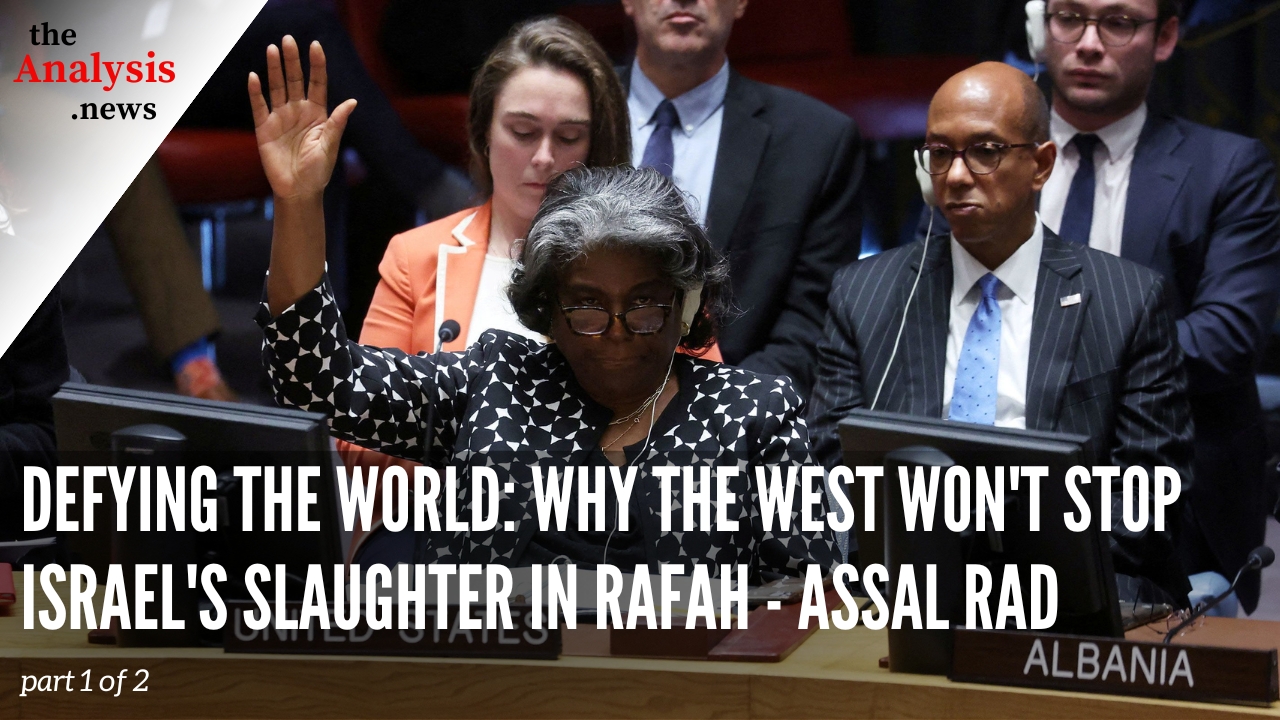
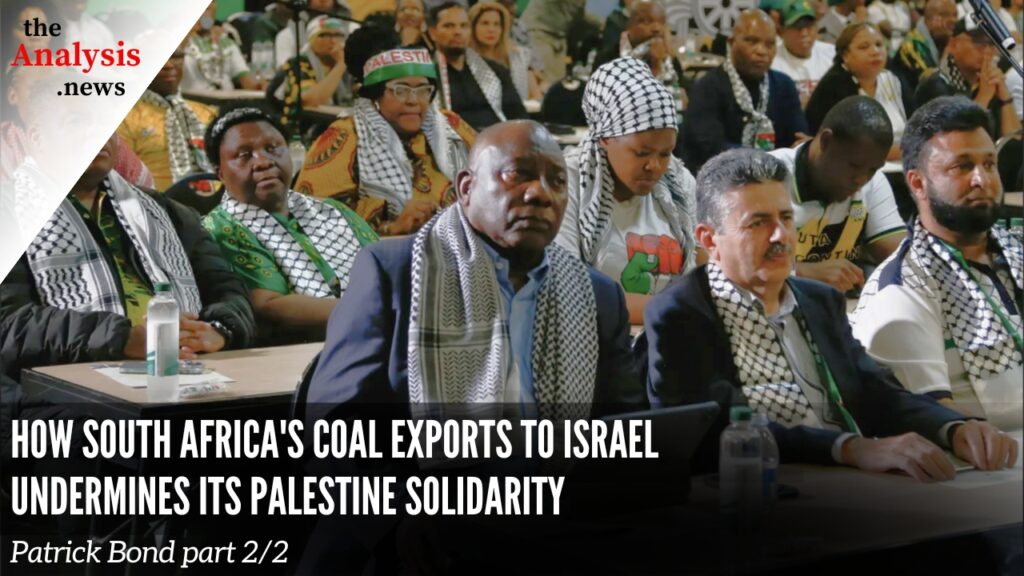












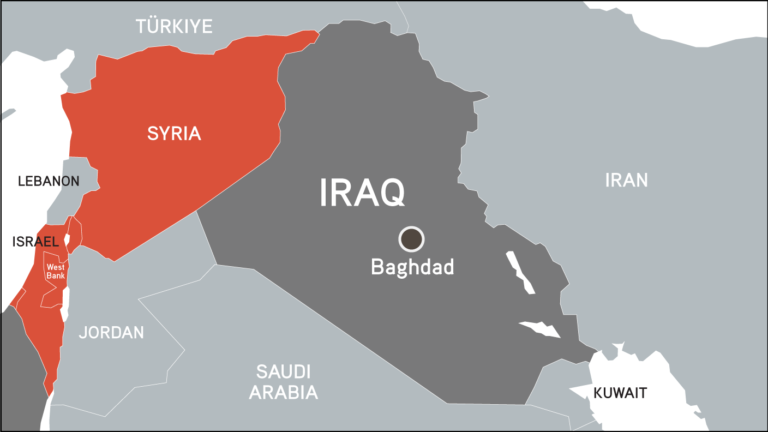

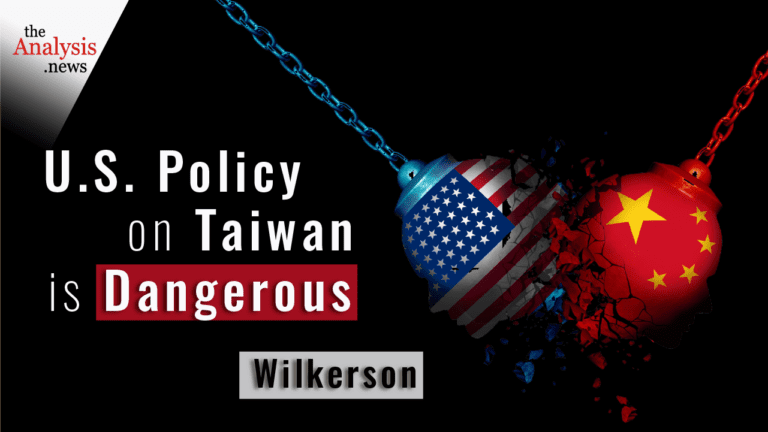
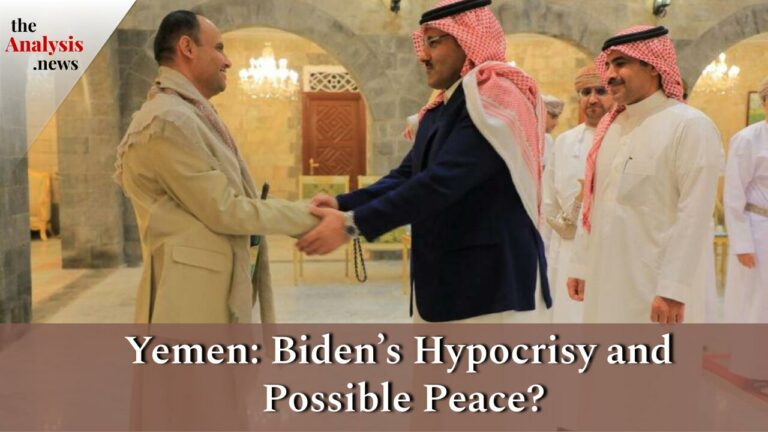

And today I heard that Israel has been approaching Palestinians in the North of Gaza telling them that they’ll bring them aid if they agree to a plan where they would become these sort of leaders in their neighborhoods. That’s going to lead to rival street gangs of the sort that we have here in the US. It’s a way of dividing Gazans even more. Down to the neighborhood level!
Thank you Talia Baroncelli. I look forward to pt. 2